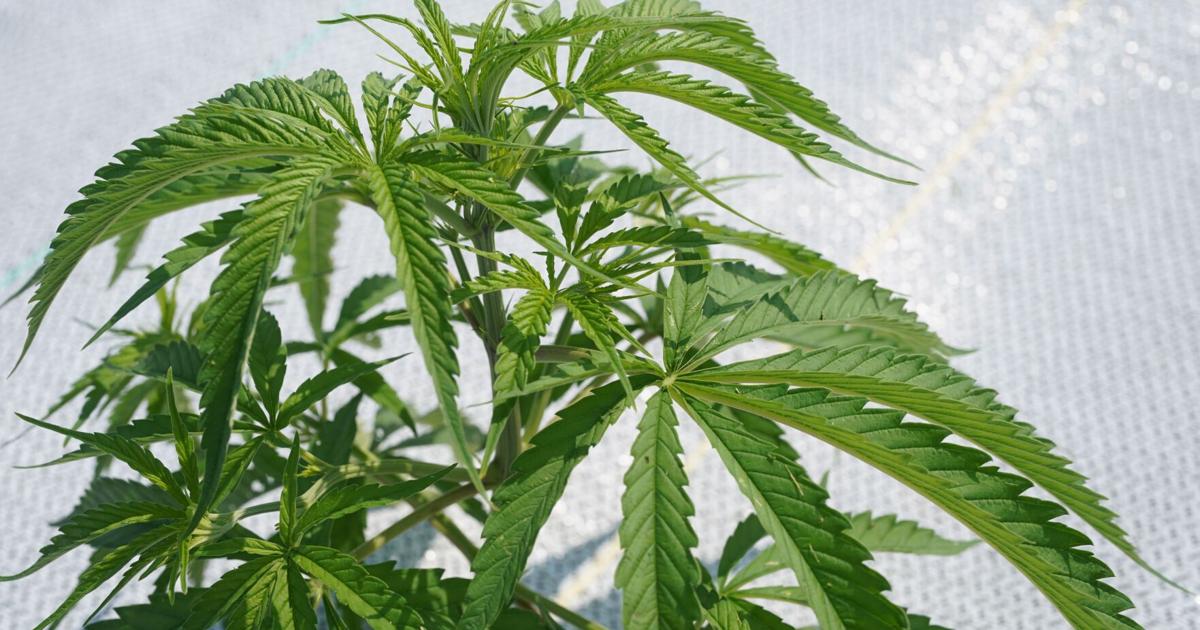
When New York State legalized recreational pot sales in 2021, the state predicted it would have at least 120 adult-use recreational dispensaries open by now.
Instead, the count stands at 27.
Other states have moved much faster.
Montana, which legalized adult-use cannabis consumption the same year, has 432 dispensaries. New Mexico legalized in 2021, too. It has 633 – 23 times more than New York.
Then there are the sales numbers.
Since January, New York has pulled in about $66 million in sales. Montana has generated nearly $170 million during the same time frame – with only about 6% of New York’s population.
Like Montana and New York, New Jersey has a young cannabis market. But as of June, New Jersey has sold roughly $305 million worth of recreational pot – more than four times as much as New York.
People are also reading…
In July, Maryland began allowing its medical operators to sell recreational cannabis – something New York plans to allow on a limited basis. Since then, it has raked in $85 million in sales in the first month alone – more than New York has all year.
The road to legal pot sales has been a bumpy one in New York. Lawsuits slowed the rollout. The state focused on granting the first licenses to applicants that had been affected by cannabis laws in the past, rather than open the market broadly.
When it does mature, New York’s recreational market is expected to generate more than $1 billion per year by 2025, and $4.41 billion by 2030, according to New Frontier Data, a marijuana research firm. But a few things have slowed it down.
The social equity-focused conditional license program, open only to those harmed by cannabis prohibition, has been a slow and fitful process. Money to help those conditional licensees was tied up in an underfunded Social Equity Fund.
The state promised to find locations for the newly licensed stores, only for licensees to be told at the last minute by the state Dormitory Authority that they’d have to secure their own real estate. Many have had trouble finding store locations.
Because New York’s market has been so slow to develop, legal pot growers have been unable to find buyers for all of last year’s crop, let alone this year’s. And now rule changes on the growing side mean those cash-strapped growers will be facing new competition from big, deep-pocketed medical marijuana firms after being promised a three-year window where large producers would be locked out.
And lawsuits have tied up store openings not once, but twice.
Now, New York is trying to speed things up. It has opened up its licensing process in hopes of adding hundreds of new stores next year. It’s allowing medical marijuana firms to open one adult-use store each by year’s end, and two more in 2024.
Conditional growers and retailers feel burned by the sudden burst of deep-pocketed competition. But state officials are hoping things will begin to smooth out.
“I would encourage New Yorkers to view the last year of what’s been going on with New York cannabis as a trial run,” said Damian Fagon, chief equity officer of the New York State Office of Cannabis Management. “We were getting the market off the ground for the first time. It wasn’t perfect, but it definitely laid a foundation for what’s to come.”
Social equity
The Marijuana Regulation and Taxation Act, signed into law in 2021, gave licensing priority for social and economic equity applicants, which it defined as individuals “from communities disproportionately impacted by the enforcement of past prohibition, minority- and women-owned businesses, distressed farmers and service-disabled veterans.”
State leaders like Assembly Majority Leader Crystal Peoples-Stokes, D-Buffalo, said it was important for those punished for engaging in the underground cannabis trade to be made whole when the trade turned legal.
“We went all over the country to see what other states did. How did they start a legal industry that excluded people who were incarcerated for cannabis when it was illegal? How did they do that?” said Peoples-Stokes. “It wasn’t intended to be equitable.”
That meant the state had no model to follow when it came to social equity, and was forced to start from scratch. Doing so greatly complicated the market’s launch.
“No state legal market of the 20 or so adult-use markets across the country has ever started with social equity,” Fagon said.
As part of that goal, the Office of Cannabis Management earmarked its first retail licenses for individuals who had been convicted of a cannabis-related offense and had two years’ experience running a business in the state.
But those conditional licenses brought with them a series of bureaucratic challenges and red tape, which slowed down the process of getting stores open. And the time people have had to wait has been a setback, growers and retailers have emphatically said.
“Other states don’t necessarily have the social equity component that New York is on the leading pioneering edge of,” said Patrick Hines, an attorney and leader of the cannabis and hemp group at Hodgson Russ. “They’re trying to balance the social equity considerations that they’re trying to advance against certain things that need to be done in order to set up a viable marketplace for a heavily, heavily regulated product.”
But there are still hiccups.
Those marginalized groups are supposed to receive priority, with half of licenses in the general application pool going to them. But the state is fast-tracking applicants who can prove they already have a store location secured – an expensive proposition for people who have had to wait through the system’s stops and starts.
“It’s been a while waiting around to see when they were going to open this up and when they might make decisions and when you could expect to have a license,” Hines said. “You may not be able to lock up property for that long.”
Access to capital
In a further attempt to make the state’s cannabis industry equitable, New York proposed a $200 million fund to help entrepreneurs of color and other marginalized groups get into the business. The state put up $50 million and sought the rest from private investors.
Those efforts lagged until June when Chicago Atlantic, an Illinois-based asset management firm with extensive experience in the cannabis industry, agreed to invest $150 million.
The fund was set up to help qualifying licensees find, lease, renovate and furnish storefronts. The money comes in the form of low-interest loans, which the licensees will be required to pay back.
Initially, the plan was for the state to find and build out turnkey locations for licensees. At the 11th hour, the state changed course and, still underfunded, the plan was changed. Licensees were required to find, lease and build out their own spaces. That has been much more difficult than anticipated, with many landlords not wanting to lease to dispensaries.
“That’s going to affect the very people who we are trying to prop up with the social equity aspects of this program, which is people who may not have access to capital, may not have access to traditional financing, especially because of the restrictions on financing and financial products for plant-touching businesses,” Hines said. “That’s going to have an impact on them if they’ve got to go out, find their own space, and then find capital to fund the build-out.”
The Office of Cannabis Management doesn’t administer the fund, it’s privately managed in partnership with the Dormitory Authority. But Fagon has personal experience as a hemp farmer trying to raise money in the cannabis space.
“They were up against a pretty big challenge in raising that money,” Fagon said.
Cannabis is still illegal at the federal level, which put banks and federally backed loans out of reach.
“You have to rely on private capital, which is inherently wary of risks,” Fagon said. “And so $150 million from the private sector, it’s going to take some time to raise that kind of cash, especially for a new market that in state after state has proven to be significantly volatile in the initial stages.”
Lawsuits have halted new store openings in the state not once but twice.
“Every state that has eventually launched a social equity program has been sued over it,” said Fagon. “The national landscape for using litigation to challenge equity programs is a grand American tradition. Whenever the state or the federal government comes in and tries to alleviate some institutional legacy harm, they’re sued over it.”
In the first instance, an out-of-state company said it was unconstitutionally left out of the first wave of store openings because the owner’s cannabis conviction occurred outside New York. Now, an injunction has stopped most store openings while a lawsuit plays out over a group of veterans who say they were unfairly left out of the state’s conditional licensing program.
Fagon said social equity programs have been even harder to execute since affirmative action was struck down by the Supreme Court. But the OCM has an explicit mandate from the Marijuana Regulation and Taxation Act to prioritize people who were harmed under cannabis prohibition.
“If we weren’t doing this work, those groups would be suing us. And I would much prefer a situation where we’re working on their behalf,” Fagon said.


